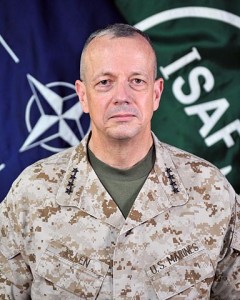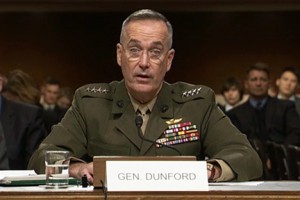Afghan Situation So Bad Propagandists Only Speak Of “Something That Could Still Resemble Victory”
Back in April, I ridiculed the Senate Armed Services Committee and especially ISAF Commander Joseph Dunford for continuing to hold on to the delusion that the US can still “win” in Afghanistan. As the situation in Afghanistan continues to get worse, a new wave of summer propaganda is being trotted out to combat the gore being produced by the Taliban’s summer offensive. One arm of the propaganda has been to tout an individual vigilante group that claims to have cleared a hundred villages of Taliban fighters in one small region. I’ll return to the problems with that a bit later, but the big propaganda blitz that is now hitting is so pitiful that I keep checking the URL of the report to make sure it wasn’t published by The Onion.
The feel-good war hawk think tank that is supposed to make the left love war, Center for a New American Security, just released a “report” that is meant to get the country to buck up and continue to support the war effort in Afghanistan. In order to get anyone to lend their name to this drivel, the group had to sink so far as to recruit serial “liberal” war apologist (and always wrong) Michael O’Hanlon. O’Hanlon was joined by John Allen, the former ISAF Commander who is so smart that he blamed green on blue killings on Ramadan fasting and former Undersecretary of Defense Michele Flournoy. But even this hand-picked group of people guaranteed to be in favor of any kind of violence that the US can wage could only muster half-hearted enthusiasm for “success” in Afghanistan. From the report (pdf):
The United States can still achieve its strategic objectives in Afghanistan if it maintains and adequately resources its current policy course – and if Afghan partners in particular do their part, including by successfully navigating the shoals of their presidential election and transition in 2014. The core reasons for this judgment are the impressive progress of the Afghan security forces and the significant strides made in areas such as agriculture, health and education, combined with the promising pool of human capital that is increasingly influential within the country and that may be poised to gain greater influence in the country’s future politics. However, the United States and other international security and development partners would risk snatching defeat from the jaws of something that could still resemble victory if, due to frustration with President Hamid Karzai or domestic budgetary pressures, they were to accelerate disengagement between now and 2014 and under-resource their commitment to Afghanistan after 2014.
Note that this group is carefully laying out several potential villains on whom to blame the upcoming failure. Read more →


